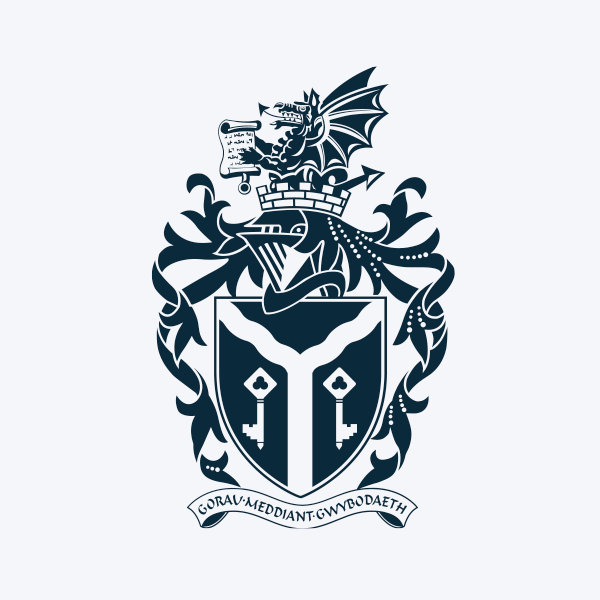
Dr Rebecca Aicheler
Senior Lecturer in Immunology
Cardiff School of Sport & Health Sciences
Research Publications
Human Cytomegalovirus Immune Evasion of Natural Killer Cells: A Virus for All Seasons?
Preston, H., Casey, R., Ferris, E., Kerr-Jones, L., Jones, L., Latif, F., Clement, M., Aicheler, R. J., Wang, E. C. Y., Stanton, R. J. & Fielding, C. A., 24 Jun 2025, In: Pathogens. 14, 7, 629.Research output: Contribution to journal › Review article › peer-review
Seasonal variation in the associations between self-reported long-COVID symptoms and IL-6 signalling-related factors (particularly the rs2228145 variant of the IL-6R gene): A clinical study.
Rees, K., Aicheler, R., Butcher, L., Dodd, A., Geen, J., Lynch, C., Massey, I., Morris, K., Tennant, B. & Webb, R., 22 Feb 2025, In: Cytokine. 189, p. 156884 156884.Research output: Contribution to journal › Article › peer-review
HCMV-secreted glycoprotein gpUL4 inhibits TRAIL-mediated apoptosis and NK cell activation
Vlachava, V. M., Seirafian, S., Fielding, C. A., Kollnberger, S., Aicheler, R. J., Hughes, J., Baker, A., Weekes, M. P., Forbes, S., Wilkinson, G. W. G., Wang, E. C. Y. & Stanton, R. J., 27 Nov 2023, In: Proceedings of the National Academy of Sciences of the United States of America. 120, e2309077120.Research output: Contribution to journal › Article › peer-review
The rs2228145 Variant of the Interleukin-6 Receptor (IL-6R) Gene Impacts on In Vitro Cellular Responses to SARS-CoV-2 VOC B1.1.7 Recombinant Spike Protein
Sarwar, S., Aicheler, R., Butcher, L., Potter, S., Rowlands, R., Webb, R. & Rees, K., 3 Oct 2023, In: COVID. 3, 10, p. 1554-1570 17 p.Research output: Contribution to journal › Article › peer-review
IL-6 signaling in acute exercise and chronic training: Potential consequences for health and athletic performance
Nash, D., Hughes, M. G., Butcher, L., Aicheler, R., Smith, P., Cullen, T. & Webb, R., 8 Oct 2022, In: Scandinavian Journal of Medicine and Science in Sports. 33, 1, p. 4-19 16 p.Research output: Contribution to journal › Review article › peer-review
Monoclonal antibodies targeting nonstructural viral antigens can activate ADCC against human cytomegalovirus
Vlahava, V. M., Murrell, I., Zhuang, L., Aicheler, R. J., Lim, E., Miners, K. L., Ladell, K., Suárez, N. M., Price, D. A., Davison, A. J., Wilkinson, G. W. G., Wills, M. R., Weekes, M. P., Wang, E. C. Y. & Stanton, R. J., 15 Feb 2021, In: Journal of Clinical Investigation. 131, 4, e139296.Research output: Contribution to journal › Article › peer-review
Downregulation of HLA-I by the molluscum contagiosum virus mc080 impacts NK-cell recognition and promotes CD8+ T-cell evasion
Elasifer, H., Wang, E. C. Y., Prod’homme, V., Davies, J., Forbes, S., Stanton, R. J., Patel, M., Fielding, C. A., Roberts, D., Traherne, J. A., Gruber, N., Bugert, J. J., Aicheler, R. J. & Wilkinson, G. W. G., 8 Jun 2020, In: Journal of General Virology. 101, 8, p. 863-872 10 p.Research output: Contribution to journal › Article › peer-review
Control of immune ligands by members of a cytomegalovirus gene expansion suppresses natural killer cell activation
Fielding, C. A., Weekes, M. P., Nobre, L. V., Ruckova, E., Wilkie, G. S., Paulo, J. A., Chang, C., Suárez, N. M., Davies, J. A., Antrobus, R., Stanton, R. J., Aicheler, R. J., Nichols, H., Vojtesek, B., Trowsdale, J., Davison, A. J., Gygi, S. P., Tomasec, P., Lehner, P. J. & Wilkinson, G. W. G., 10 Feb 2017, In: eLife. 6, e22206.Research output: Contribution to journal › Article › peer-review
Human cytomegalovirus: taking the strain
Wilkinson, G. W. G., Davison, A. J., Tomasec, P., Fielding, C. A., Aicheler, R., Murrell, I., Seirafian, S., Wang, E. C. Y., Weekes, M., Lehner, P. J., Wilkie, G. S. & Stanton, R. J., 17 Apr 2015, In: Medical Microbiology and Immunology. 204, 3, p. 273-284 12 p.Research output: Contribution to journal › Review article › peer-review
HCMV pUL135 remodels the actin cytoskeleton to impair immune recognition of infected cells
Stanton, R. J., Prod'Homme, V., Purbhoo, M. A., Moore, M., Aicheler, R. J., Heinzmann, M., Bailer, S. M., Haas, J., Antrobus, R., Weekes, M. P., Lehner, P. J., Vojtesek, B., Miners, K. L., Man, S., Wilkie, G. S., Davison, A. J., Wang, E. C. Y., Tomasec, P. & Wilkinson, G. W. G., 13 Aug 2014, In: Cell Host and Microbe. 16, 2, p. 201-214 14 p.Research output: Contribution to journal › Article › peer-review